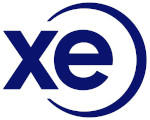Stocks
Those who want to focus on long-term investing may wish to focus on stocks, possibly blue chips . To trade these instruments directly requires a dedicated account with a stockbroker. Some platforms do offer trading in multiple regions on one account, though many investors tend to open an account in the country where they wish to focus their investing. When you start out, it’s best to focus on large, well-known companies that are growing their profits every year.
Contracts for difference (CFDs)
An increasingly popular option, thanks to the internet, is trading in CFDs . CFD trading platforms, such as IG, allow retail traders and investors to access multiple markets with one trading account. Whether they open an account in Japan, the UK, or elsewhere, they will have access to markets all over the world, including forex, stocks, indices and commodities. This makes things a lot easier for those who want to diversify into different markets, and perhaps even hedge their currency exposure.
Exchange-traded funds (ETFs)
Those who want to diversify a little more may want to look at ETFs , which can be traded in the same accounts as stocks. ETFs are a good way to get diversified exposure to a region, country or sector. It’s generally a good idea to invest at least 60% of your savings in the country in which you wish to settle in the long term. This is because your investments will be exposed to the same levels of economic growth and inflation as your costs. However, it’s also a good idea to diversify and have at least 20% of your savings invested in other countries too.
Forex trading
Most expats are very familiar with the foreign exchange ("forex") market and often find themselves trying to decide when the best time to move money between countries might be. If that sentence describes you well, then you are already halfway down the road to becoming a forex trader. It may be worth learning more about the market, as it will give those decisions about currencies some perspective. You might find you really enjoy forex trading, and can even see if you are able to make a part-time income from it.
Commodities trading
Trading commodities, such as gold, requires more experience. It’s advisable to get a feel for markets by investing in stocks and dabbling in the forex market first. If you find you really enjoy learning about markets, you’ll pick up lots of information about commodities along the way.
Cryptocurrencies
Finally, cryptocurrencies such as Bitcoin seem to be getting all the attention these days. Should you be investing? If you are interested, you should be doing a lot of reading on the subject first. The crypto world is very complicated, and the industry is largely untested. Nobody really knows how it's all going to play out. So, it’s advisable to do your homework before investing.
Expats have an ideal opportunity to use their global outlook and build up some solid long-term investments all over the world. There are plenty of free resources on the web, and most brokers offer free demo accounts to give you a feel for markets without risking any real money. All it takes to get going is a little time and effort.



